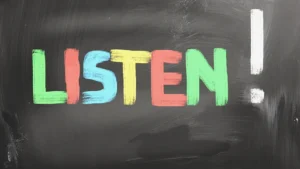Empathy is about relating to peoples’ emotions and understanding their different perspectives. Since empathy was first defined as Einfühlung, researchers have been constantly debating about empathy being a phenomenon dominated by an affective or cognitive perspective.
Empathy research in social neuroscience tries to shed some light on how we experience empathy and understand its mechanisms within the brain and body. The latest research shows that empathic responses develop with accumulating social experience over the lifespan. Also, expressing empathy decreases with age, while younger people are more sensitive to embarrassment and grief in a social context.
However, empathizing is a difficult process to replicate within the same conditions, obtain similar results, and make valid assumptions. For a long time, the value of the empathy phenomenon has been diminished, because of its emotional subjectivity. People’s emotions, perspectives, and perceptions are difficult to measure.
Along the way, researchers have made progress and tried to study empathy in correlation with moral principles and organizations. Measurement tools like Active Empathetic Listening (AEL) scale, Interpersonal Reactivity Index (IRI) or The Affect Reading Scale (ARS) were developed to help us to better understand the empathizing phenomenon.
Recently, the Empathy Global Index started with the assumption that there is a direct link between empathy and financially successful companies. According to this newly created index, to be rated as an empathetic corporation, organisations must demonstrate empathy across three channels, to their own employees, to customers, and finally to the public via social media.
Empathy, altruism and personal growth
Most empathy definitions specify that we have to do with matching feelings along with the positive contribution from the empathizers. But surely, without constantly trying to understand and help each other, we can’t speak about empathy. By being empathic we experience life on different plans and with other priorities. We get to understand other people’s perspectives, we gain insights on a personal level about our limits.
Also, we extend and enrich our experience with new perspectives and can reach other conclusions that we initially were able to. It’s like taking a journey to understand ourselves and contribute to our growth, a chance to better understand our problems. Sharing similar experiences, worries, and concerns, it’s like receiving an altruism lesson. The learning that comes with empathy can help us improve our abilities to communicate and understand people.
Empathy is Emotion, Genuine Care and Understanding
Empathy is a form of relating to each other by being aware and caring about a person close to us. It’s a kind of awareness that contributes to a deep understanding of people’s emotional needs and genuine care for their feelings and well-being. Through, empathizing we get in touch with people’s concerns and emotions. Instead of guessing the reasons behind an action or behaviour, we may understand their inner resorts and problems. Empathy compels us to listen, share and understand each other.
So, having empathy for life circumstances and people’s feelings implies recognizing and dealing with their positive or negative emotional states. Research shows that around 10% of empathy is a genetic inherited trait and by comparison, women are more empathic than men. We can assume that a higher level of empathy comes from childhood parenting, personal experience, education, training or interests.
We empathize with the mental states of people, their perspectives and emotions or feelings. As a social ability empathy combines two important dimensions, knowledge and affectivity. But, it seems that empathy is an ability that might deteriorate after the age of 65. A study about cognitive empathy across the lifespan shows that empathy gradually declines in old age.
Positive emotions and collaboration
In an organisational context, systematic training can improve individuals’ empathy. Organizational learning interventions for improving empathy are a long-term solution to facilitate teams’ cooperation. Seeing daily issues or responsibilities through the eyes of another person might offer us a new and even innovative solution. Empathizing with other people empowers us to act with a greater sense of honesty and transcend personal and cultural differences.
Empathizing exercises can provide us with the motivation to further pursue both team targets as well as the well-being of team members. It is an empowering learning tool that helps to focus on cooperation. Also, it can establish common grounds and interests by understanding the other person’s views.
There have been research efforts to attain a level of accuracy in measuring empathy phenomenon, as a personal, situational and cognitive trait. Parts of these studies showed that positive emotions, even sadness evoked more emphatic emotions than negative emotions like anger and shame. So, we can safely say that positivity multiplies empathy and generates collaboration and cooperation between us.
Sense of fulfilment and synergy
Empathizing can be used as a tool to identify solutions and give a synergy boost to an entire team. It can strengthen and improve relations between team players by facilitating different perspectives taking. There is a good chance that positive concerns about each other will grow and generate team cohesion.
Surely, everyone had at least one experience about truly understanding someone else’s point of view and creating a more valuable view with better chances to be implemented. Understanding and helping each other increases our sense of fulfilment and belonging to the team or a group.
Empathy as a leadership ability
Lately, empathy has gained a lot of interest in relations with leadership roles. Leading with empathy is now a required ability for many leading positions. Empathy as an ability in a job description is linked to the deep understanding of employees’ emotions, beliefs and interests that an ideal empathetic leader would possess.
Ideally, an empathic leader should be able to create authentic relationships with people, make ethical decisions, encourage creativity, and foster belonging and a positive work environment. The motivation for requiring empathy as an ability for leading roles is related to organisations’ intentions to solve people’s issues by genuinely responding to their needs.
But, is more a desire than a reality because there aren’t many empathetic leaders out there. Empathy is about sharing and understanding emotional states or personal concerns whether they are positive or negative. This is not an easy task and in leading positions, empathy might be perceived as a weakness, not a powerful ability to solve people’s issues.
Moreover, empathy involves providing people with an empowering or encouraging presence to help them see their way through whatever issue they are facing. This might be one of the reasons why empathy has become such a desired ability, especially for leadership positions.
From an organizational point of view, empathy is not simply a nice to have positive ability. Empathy can play an important role in organisational cohesion, overall creativity and growth. Hopefully, more companies will value empathy and embed it as a long-term problem-solving ability.





